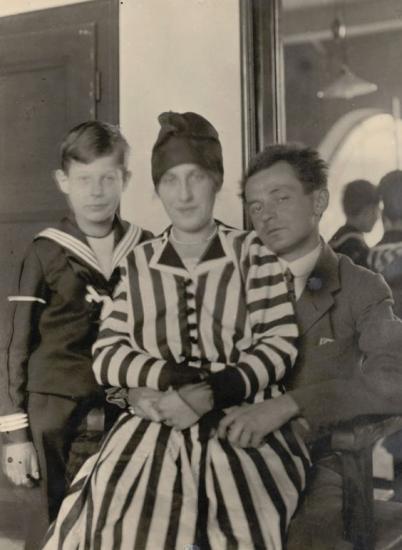From the drawing to its printing, this lithograph has been entirely realized by hand.
With the same technical and artistic constraints, the same moves are made on the very same period machines. Drawn and printing colour by colour on "Marinoni Voirin" lithographic flat press of 1920. |
- Title : The mother & the child, 1909 (Edith Schiele and her nephew)
(Edith Schiele mit ihrem Neffen)
- Technique : Lithography
- Date of edition : 2014
- Publisher : FRANCE ART DIFFUSION
- Lithography workshop : Atelier A Fleur de Pierre (Paris)
- Lithographers : Etienne de Champfleury & Jean-Pierre Stholl
- Size : 29,9x21,3 inches / 76x54 cm
- Paper : Velin d'arches 270g
- Justification : Hand-signed & numbered in pencil by the lithographers & the publisher
Dry stamp of the publisher
- Certificate of authenticity
 |
Drawing from
a family photo of 1915
Edith Schiele (center)
Paul Erdmann, her nephew (left)
Egon Schiele (on the right)
|
|